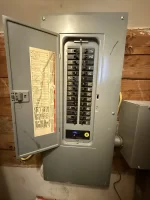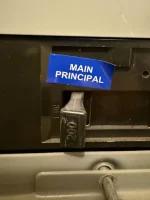- Joined
- Aug 18, 2025
- Messages
- 25
- Reaction score
- 11
- Cars
- 2025 Lucid Air Pure
- Air DE Number
- 1
I have been getting quotes for a home charging setup and they are all over the place. I’ve received quotes of $1100, $2000, and $3000 for the installation of a nema 50a outlet. , Another is charging 3k for the outlet and the whole home surge protector.
I didn’t even know what a whole home surge protector was until this quote. How do I differentiate the quotes? I have a feeling there is a qualitative difference in equipment, but I don’t know what to ask. Anyone happen to know how I can tell what is a good price for quality vs a bad price for bad equipment?
I didn’t even know what a whole home surge protector was until this quote. How do I differentiate the quotes? I have a feeling there is a qualitative difference in equipment, but I don’t know what to ask. Anyone happen to know how I can tell what is a good price for quality vs a bad price for bad equipment?


